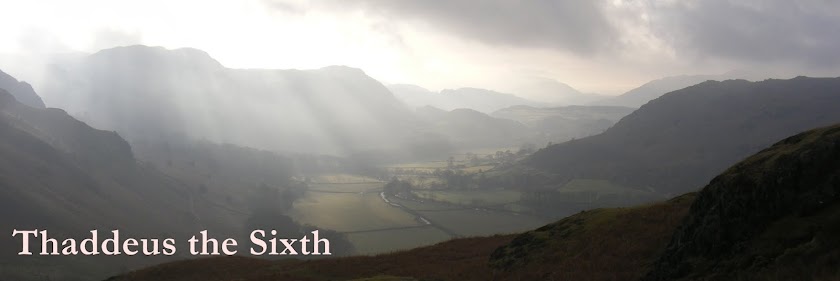Yes, finger on the pulse as always, reviewing a sci-fi series from the late 1970s. It was the heyday of British sci-fi, when special effects were dire and writing was excellent. I’ve had the notion of watching Blake’s 7 for ages and finally watched the first series.
I had a good feeling before the show even started because I saw the name Terry Nation and, having read plenty of Doctor Who books and seen more than a few episodes of the show, knew that was a very positive sign. And the augury proved true.
In terms of spoilers, I’ve got to talk about the premise and main characters but will try and keep any plot points beyond the obvious to a minimum.
The first episode is a little bit of its own animal as Blake has lost his memory (or, more accurately, had it reprogrammed by a dictatorial government). He discovers through the aid of some political freedom fighters that he once was a leader in a rebellion against the government but when he was captured they used mind-altering techniques to turn him into a model citizen and poster boy for his erstwhile enemies.
His new allies end up being of little use, though, and Blake gets put on trial with a view to fitting him up for harming children and using that as a pretext to get him away from where he might cause harm. Cue episode two, when he’s on a prison ship bound for a penal colony. From this point he starts being more himself, putting together a band of rebels intent on doing good.
I drifted away from New Who some time ago, which happily means that while I’m aware of the idiotic character assassination that has recently occurred I’m less concerned than if I were still into it (Doctor Who was one of my favourite TV shows as a child). Defeating cybermen with happy thoughts, and deus ex screwdriver do not good plots make. Terry Nation is of a different era, and it’s all for the better. It was so refreshing to have intelligent villains making rational plans to try and trap Blake and his crew, and it made the success of Blake et al. all the more impressive. There are two main recurring villains in the first series: Travis, a soldier with a serious grudge against Blake, and the Supreme Commander, who is a very wily (and utterly ruthless) lady.
On Blake’s side, including himself and the ship’s computer Zen, are seven individuals. These range from the telepathic Cally to ex-smuggler Jenna. My favourite is easily Avon, who is a highly intelligent, calculating man who might yet betray Blake and has some cracking one-liners (when another crewman complains of a sharp pain right behind his eyes, Avon asks if he’s considered amputation [NB this is early in the second series]).
Mostly the 13 episode first season is a set of self-contained stories, although the story arc of Blake being incarcerated for a crime he didn’t commit and being shipped off does occupy the first few episodes. Likewise, there are recurring villains, and the final two episodes do form a two-parter rather than separate stories.
Effects-wise, things are charmingly ropey. That may put one or two people off, but the sharp writing, smart plots, and entertaining characters more than make up for it.
If you’ve not really heard of or considered watching Blake’s 7 I can strongly recommend giving it a go.
Thaddeus

